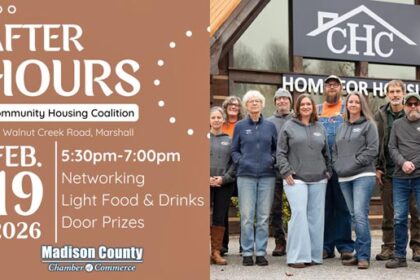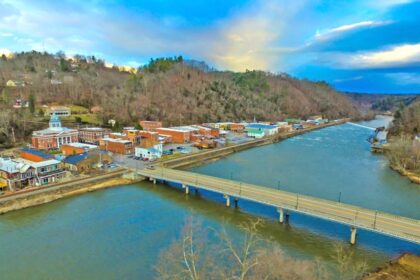
Keep Your Recovery on Track. Visit a Disaster Recovery Center.
North Carolina Tropical Storm Helene survivors now have until February 6, 2025, to apply for assistance with FEMA. Homeowners and renters in 39 counties and the Eastern Band of Cherokee Indians with uninsured losses from Tropical Storm Helene are eligible to apply for FEMA assistance. There are several ways to apply:
Go online to disasterassistance.gov
Download the FEMA App for mobile devices
Call the FEMA helpline at (800) 621-3362 between 7 a.m. and midnight. Help is available in most languages. If you use a relay service, such as video relay (VRS), captioned telephone or other service, give FEMA your number for that service.
Disaster Recovery Centers (DRC’s) are available to provide face to face assistance with your FEMA related questions and needs. To find the center location nearest you go to fema.gov/drc.
Transitional Sheltering Assistance
FEMA is providing multiple temporary housing options to meet North Carolinians’ individual needs. The first step to receiving housing assistance is applying with FEMA.
FEMA is extending the Transitional Sheltering Assistance hotel stays until January 25, 2025 for 3,000+ who are eligible. Families checking out January 14 are returning to habitable homes or withdrew from FEMA assistance. For those who still need help, please call (800) 621-3362.
FEMA and Nonprofit Organizations Working to Repair or Replace Private Roads or Bridges
FEMA may be able to help pay for a road or bridge on private property when it is the only route available to reach your primary home or it is the only access for emergency vehicles. The first step in determining eligibility for this assistance is to apply with FEMA.
Call the FEMA Helpline at (800) 621-3362 or visit a Disaster Recovery Center to update your application. Nonprofit organizations are also assisting residents. More information on their efforts can be found at Bridging Together, LDRcarolinas.org/bridging-together.
To date, FEMA has awarded more than $9.5 million for repair or replacement of roads and bridges to more than 3,500 families.
Crisis Counseling, Mental Health Resources Available for Helene Survivors
The North Carolina Department of Health and Human Services’ Hope4NC Crisis Counseling Program provides immediate support and crisis counseling services for North Carolinians following Helene. Survivors experiencing stress, emotional fatigue, a mental health crisis or just need someone to talk to, can call the Hope4NC Helpline 24/7 at (855) 587-3463. Services are provided at no cost and are available to anyone residing within the declared 39 North Carolina counties and tribal members of the Eastern Band of Cherokee Indians, regardless of their eligibility for FEMA financial assistance.
Additionally, the Substance Abuse and Mental Health Services Administration’s Disaster Distress Helpline is available anytime to provide support. Survivors and responders feeling overwhelmed can call or text 800-985-5990 to receive free, confidential support in any language.
Disaster Unemployment Assistance
The deadline to apply for Disaster Unemployment Assistance is extended to February 6, 2025. For more information or to register online, visit www.des.nc.gov.
Survivors in 39 counties and the Eastern Band of Cherokee Indians of North Carolina are able to apply for Disaster Unemployment Assistance. To date, more than $6.6 million in federal unemployment benefits have been provided to survivors.
For more information call the unemployment assistance hotline at (919) 629-3857. For Spanish call (919) 276-5698. The hotline is open from 8 a.m. to 7 p.m. Monday – Friday and 8 a.m. to 12 noon Saturday, and 12 noon until 4 p.m. on Sunday.
Read Your FEMA Letter Carefully
If you applied for assistance, you will receive a letter explaining your application status. If you are not currently approved for assistance, you may need to send additional documentation to FEMA. You can easily upload documents to Disasterassistance.gov or submit them at a Disaster Recovery Center.
Qualifying Private Nonprofit Houses of Worship May be Eligible for FEMA Grant
FEMA’s Public Assistance program may cover costs to repair or replace facilities damaged during the storm. Interested applicants should contact North Carolina Emergency Management at pahotline@ncdps.gov.
Appeal a Decision
You can appeal any FEMA decision or award amount by sending additional documents, like estimates for repairs, receipts, bills, etc., that show you qualify and need more help. Each decision letter from FEMA explains why you are ineligible and the types of documents to help you appeal. For more details, please visit www.fema.gov/fact-sheet/how-appeal-fema-decision-1.
Meet with a FEMA Mitigation Specialist in a Disaster Recovery Center
FEMA mitigation specialists are in DRCs to help answer questions and give advice on techniques to repair and rebuild safer and stronger. They are meeting with people at DRCs in Alleghany, Ashe, Avery, Burke, Caldwell, Haywood, Henderson, Madison, McDowell, Mecklenburg, Mitchell, Rutherford, Transylvania, Watauga, and Yancey counties.
Help Still Available for Survivors in Need of Clean-up Assistance
After a disaster, cleaning up is a crucial first step toward a successful recovery. Help is still available for survivors in need of assistance cleaning up their Helene-damaged homes.
- Reach Global Crisis Response – Serving Henderson and Buncombe counties. To request crisis cleaning or rebuilding help contact the local intake number at (828) 357-7251.
- Operation Blessing – Offering crisis clean-up within 40 miles of Black Mountain, N.C. To request assistance, contact (757) 254-3851.
- Operation Anchor – Offering crisis clean-up, rebuilding, tree removal and driveway repairs in Yancey, Mitchell, and parts of Buncombe counties. To request assistance, call or text (800) 730-2537 or use the online request form.
- All Hands and Hearts – Providing disaster cleanup, mold remediation, and repairs. For assistance, call the local intake number at (828) 712-7040.
- NECHAMA Jewish Response to Disaster – Offering debris removal and crisis cleanup help. For assistance, email: max@nechama.org.
- Fuller Center Disaster Rebuilders – Providing disaster cleanup, mold remediation and rebuild help outside Black Mountain. For assistance, call the intake number at (337) 909-5444 or email toni@disaster-rebuilders.org.
- Ground Force Humanitarian Aid – Offering disaster cleanup, debris removal, plumbing, and repairs. Request assistance online at gfha.us/requesthelp.
- Rise Disaster Relief and Recovery – Providing chainsaw work, muck and gut, tree and debris removal in Mitchell County, Residents can call the office at (980) 825-7473 to request assistance with any of the services they provide or apply online at riseteam.org/get-help.
Helpful Resources for Disaster Survivors
- FEMA is working to stop the spread of dangerous rumors. Learn more at www.fema.gov/disaster/current/hurricane-helene/rumor-response.
- United Way’s NC 211 is a multilingual, confidential service that provides health and human services information and referrals through a free statewide phone number (2-1-1 or 1-888-892-1162 if calling from an out-of-state area code) and website (www.nc211.org).
- NC Department of Health and Human Services shares guidance on ensuring water is safe and preventing waterborne disease or illness at www.ncdhhs.gov/safe-water-simplified/download?attachment.
- NC Department of Public Safety Emergency Management, www.ncdps.gov/our-organization/emergency-management.
- North Carolina Office of the Governor, www.governor.state.nc.us.
- North Carolina State and Local Level Referrals, www.fema.gov/assistance/individual/disaster-survivors/state-local-referral-lists/north-carolina.
- North Carolina Disaster Relief Fund, www.nc.gov/disaster-relief-fund-faqs.
- United States Postal Service has established alternate locations. Find a nearby location at about.usps.com/newsroom/service-alerts/residential/welcome.htm.
By the Numbers
- $291 million approved to 142,000+ households and individuals beginning their recovery. That includes money to help rent a home or apartment as survivors begin their recovery.
- $307 million in Public Assistance funding approved to support community recovery.
- The US Small Business Administration is still accepting low-interest loan applications. To date more than $28.3 million in loans have been awarded.
- More than 5,300 households are using Transitional Sheltering Assistance hotels and motels.
- 85 households have been placed in temporary housing units provided by FEMA Direct Temporary Housing Assistance.
- FEMA has contracted with 13 commercial parks to be able to place units and the agency is working with more than 20 other parks for potential contracting purposes.
- To date, more than 2.4 million cubic yards of debris has been removed from public rights of way by FEMA and the US Army Corps of Engineers and its contractors. Debris currently being removed includes: vegetative/woody debris, construction debris, white goods (appliances), and household hazardous waste.
For the latest information about North Carolina’s recovery, visit fema.gov/disaster/4827. Follow FEMA Region 4 @FEMARegion4 on X or follow FEMA on social media at: FEMA Blog on fema.gov, @FEMA or @FEMAEspanol on X, FEMA or FEMA Espanol on Facebook, @FEMA on Instagram, and via FEMA YouTube channel. Also, follow Administrator Deanne Criswell on X @FEMA_Deanne.








